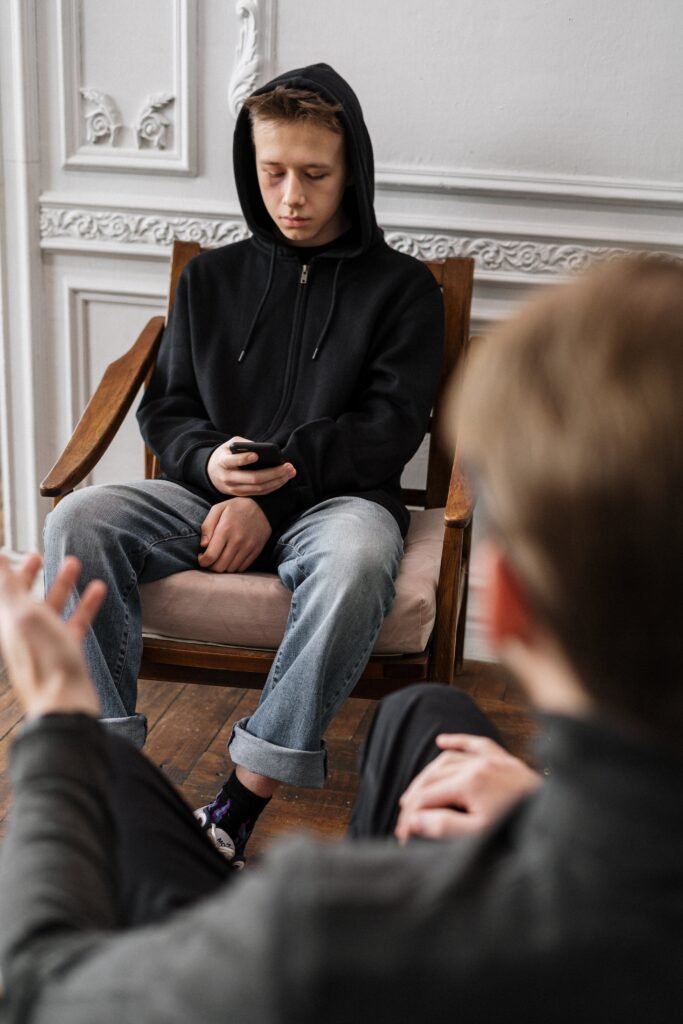As schools return for 2024, there is one issue that will be nagging at many school leaders. What is to be done about the disciplinary investigation process?
For many schools in Australia, New Zealand and across the globe, the process of investigation into student behaviour is a mine field. The process is often flawed, resulting in negative outcomes for students and their families. Angry parents are increasingly threatening litigation. Bad news stories end up in the media, causing reputational damage that is difficult to reverse.
An investigation can create division within a school community. People have opinions. People take sides. To further complicate matters, often what begins as an investigation into student behaviour turns into an investigation into allegations of staff misconduct.
It’s an area that requires immediate improvement.
In this article I’m going to focus on one of the core components of a high-quality disciplinary investigation: the investigative interview. I’ll show you why interviewing is so important if schools want to conduct investigations that will withstand criticism. I will identify the dangers of traditional interviewing practices and consider the positive impacts of an alternative method. And I will show you how this transformation can be achieved in your school.

The investigation process
Any decision over whether to discipline a student by stand-down, suspension, exclusion or expulsion should be preceded by an investigation. For state schools in Australia and New Zealand, the requirements are generally made explicit by their various governments. Independent schools are left to create their own policies and procedures but would be well advised to take their cue from government-issued guidelines.
When considering what you are required to do during this process, the overall guiding principle is fairness. New Zealand’s Ministry of Education advises school managers that it is their role ‘to investigate incidents of student behaviour following the rules of natural justice.’ Natural justice, a general legal concept similar to ‘due process’, is about being objective, free from bias and providing the student under investigation with a fair hearing. In 2018, Victoria’s then Minister of Education, James Merlino, issued a Ministerial Order in which he decreed that ‘Before deciding to expel a student the principal must…properly, fairly and without bias consider all of the relevant matters…in making their decision’. The concept is simple. Be fair in everything you do.
As simple as this is to understand in principle, it’s a lot harder to implement in practice. It’s especially difficult for school leaders whose training and focus is generally on, well, teaching. Teachers are given strategies to manage disruptive behaviour in the classroom, but are not taught how to investigate when there’s an incident of cyber bullying, violence or theft. Certainly not to investigate fairly, objectively and in line with natural justice principles. As a result, school leaders are left to make it up.
Standing down a student from school is a big deal and can have serious long-term consequences. There is a growing body of research supporting the idea of a correlative, if not causative, relationship between being stood down from school and entry into the criminal justice system (the “school-to-prison pipeline”). The Queensland Government puts it like this: ‘These decisions can have a serious effect on the student and their family, including limiting their human rights.’ If you’re making this decision, you want to make sure you’re considering every available piece of information, for the sake of the students.
Staff and governance team members being asked to investigate these incidents with no investigation training. If that’s you then you’re being placed in a precarious position. On the one hand, you have to act. Urgently. You are responsible for providing a safe environment for students and a failure to take action presents a risk. On the other hand, if you conduct an investigation that is insufficiently thorough, doesn’t follow the principles of natural justice, or is seen to be biased, you face intense criticism. Parents will often take to social media and it’s becoming increasingly common for lawyers to get involved.
In 2020 a prominent independent school in Australia was reportedly threatened with a $750,000 litigation after an investigation into a violent incident. Several high school students were originally expelled from the school after they assaulted another student. During the investigation, the school interviewed the students alleged to have been involved. The media reported that the students were essentially denied their right to have a supporting adult present during the interview, thus making the entire process procedurally flawed and unfair. Once threatened with litigation, the school then relented and allowed the students back in. The students bragged about the situation online, causing an additional uproar and a completely avoidable embarrassment for the school involved.
Did this investigation play out exactly as it was reported in the media? I don’t know. But that’s how the story reads and the reputation of this school was tarnished as a result. (I think it has been repaired now).
If the facts are as reported, was the school deliberately unfair in the way it treated the alleged wrongdoers? I doubt it. I think this is simply a case of people being asked to carry out an investigation without having the necessary capabilities.
Investigative interviewing
As is highlighted by the example above, one of the essential components of the investigation process is the interviewing of everyone involved. In any investigation, criminal or civil, eyewitness testimony is crucial.
In criminal investigations there are numerous avenues to uncovering the truth in today’s world. Detectives can obtain data from telecommunications companies and banks, security camera footage, and data stored on electronic devices. Even the data from smart watches is being used to solve homicides these days. Despite this plethora of evidence, there’s still nothing quite as powerful as a witness who can describe what they personally saw, smelt, tasted, heard or felt.
If a Detective is still heavily reliant on witness testimony, how much more so a school principal?
For this reason, high quality interviewing is critical to conducting an inquiry that achieves a fair outcome. This includes the interviewing of the alleged wrongdoer(s) but also includes the interviewing of witnesses – other students, staff, parents. And doing so in a manner that is effective and ethical.
The problem with memory
Investigative interviewing is a specialist skill requiring specific training because it involves retrieving memories. And despite the incredible confidence we have in our memories, our memory can be unreliable. Our confidence is often ill-founded.
Like many other children who grew up pre-internet and smart phones, I had a tape deck in my bedroom. Every night I listened to music being played over the radio and hit ‘RECORD’ when my favourite song came on. If I managed to hit the red button on time, and the DJ didn’t talk too far into the song, I then had a recording I could listen to over and over and over again at my leisure.
We think our brains operate in the same way. They don’t.

As memories enter our brains, they can be contaminated as they are encoded and stored away for later retrieval. There are many factors that can affect this process, including trauma, stress and heightened emotion. Take a moment to consider how often incidents in your school involve trauma, stress and heightened emotions.
Memory retrieval
Memory retrieval, which is what an investigative interview aims to do, isn’t as simple as just hitting ‘PLAY’ and listening to the memories play back like an Alanis Morisette tune. The wording of the questions you ask can significantly influence what comes out.
One 20th century study had subjects interviewed after viewing a motor vehicle collision. When the interviewers asked the subjects about the speed of the vehicles at the time of impact, they experimented with the wording of their questions. The type of words used in the questions had a noticeable effect on the answers provided. Words like “smashed” resulted in reports of a higher speed.
Studies have even shown that it is disturbingly easy to create false memories in the interviewee. In fact, one study showed that inserting one word into a question on one day can produce a false memory in the subject days afterwards through the power of suggestion. One word!
The point here is that if you’re asked to conduct an interview with someone with a view to obtaining an account that is accurate and reliable, you need to know what you’re doing. This is even more important when the information you’re obtaining is going to inform decisions you make later which will impact the life of the student, their family, and your school.
Interviews that work
There are interviewing methods that have been specifically designed to minimise the risk of memory contamination. They are supported by decades of scientific research. At Basalt Solutions, we teach the P.E.A.C.E. method, tailored to the individual needs of each of our clients.
This method involves careful planning. It emphasises the importance of effectively engaging with the interviewee before commencing the interview process. It creates certainty and predictability for the interviewee. Crucially, it equips the interviewer to prepare the brain of the interviewee before asking them to recall anything. Done well, it should result in the interviewer talking a lot less than the interviewee, minimising the risk of contaminating questions or comments. This method is designed to elicit an account that is detailed, accurate and reliable. It goes beyond the surface and often uncovers far more information than expected.
Unfortunately, those tasked with carrying out interviews in the context of a school disciplinary investigation have usually never received any training in how to interview effectively. Whenever I speak to educators who have been involved in investigations, I like to ask what interviewing method they use. The response I get back most often is a version of, “I just ask some questions and write down the answers”. That’s understandable if you don’t know any better, but essentially asking questions and recording the answers is closer to interrogation than interviewing. And interrogation doesn’t work. This was an acceptable interviewing method 50 years ago, but that was before we understood how memory works.
Eyewitness testimony is the main piece of evidence relied upon in a school disciplinary investigation, but it’s usually obtained by people who are not trained in investigative interviewing best practice. There is a danger that the information obtained is unreliable. Yet this is often all schools use to determine whether a student should face the most serious of disciplinary sanctions. It’s no wonder disciplinary investigations often create such a mess.
Imagine
Take a moment to picture what sort of transformation would occur if your school invested in developing interviewing skills.
Undoubtedly, the outcomes of disciplinary investigations would be more just. The information obtained from everyone involved is the primary source of information on which principals and governing bodies make their decisions. Decision-makers should be considering a whole range of factors when considering disciplinary sanctions. They should be thinking about mental health. Wellbeing. Religion. Culture. And the home environment. If the information obtained during interviews is more detailed it will drive much better decision-making.
It would also go a long way towards preventing negative behaviours from re-occurring. The whole point of disciplinary procedures is to help students understand expectations. To learn more acceptable ways of interacting with others. It should be a learning experience. Best practice in investigative interviewing allows the interviewee to give an account that is far more detailed than a back-and-forth interrogation. The empathetic, interviewee-centric approach results in a process that uncovers motivations and root causes behind the behaviour. Interviewers are able to discover “The Why” behind whatever led to the investigation in the first place. This would give schools a greater chance of taking a restorative, therapeutic approach rather than punitive action. That is a win.
The solution
Schools need to seriously consider building their investigative interviewing capabilities. With quality training and ongoing support, it’s possible to build a very capable team of interviewers.
If you’re a school leader, just take a moment to consider what an impact that could have on your school in the long run. If this is something you would like to see happen in your school, why don’t you take a look at what we’re offering. Because our experience includes both high-level investigative interviewing and education, we understand how to apply these principles in the school environment better than anyone else. We offer a range of workshops to equip schools to better handle their investigations as well as ongoing coaching. We understand that teachers need flexibility, so we offer our training in-person or remotely, enabling us to serve schools anywhere in the world where there’s an internet connection.
The objective of every investigation, including school disciplinary investigations, is to get to the truth. Improving the interviewing capabilities in a school is an excellent first step towards this goal. It’s a step toward fairer outcomes. For students, parents, and staff. It’s a worthy goal for 2024.

Pingback: Interviewing school students: five tips for a successful investigative interview - BASALT SOLUTIONS LTD